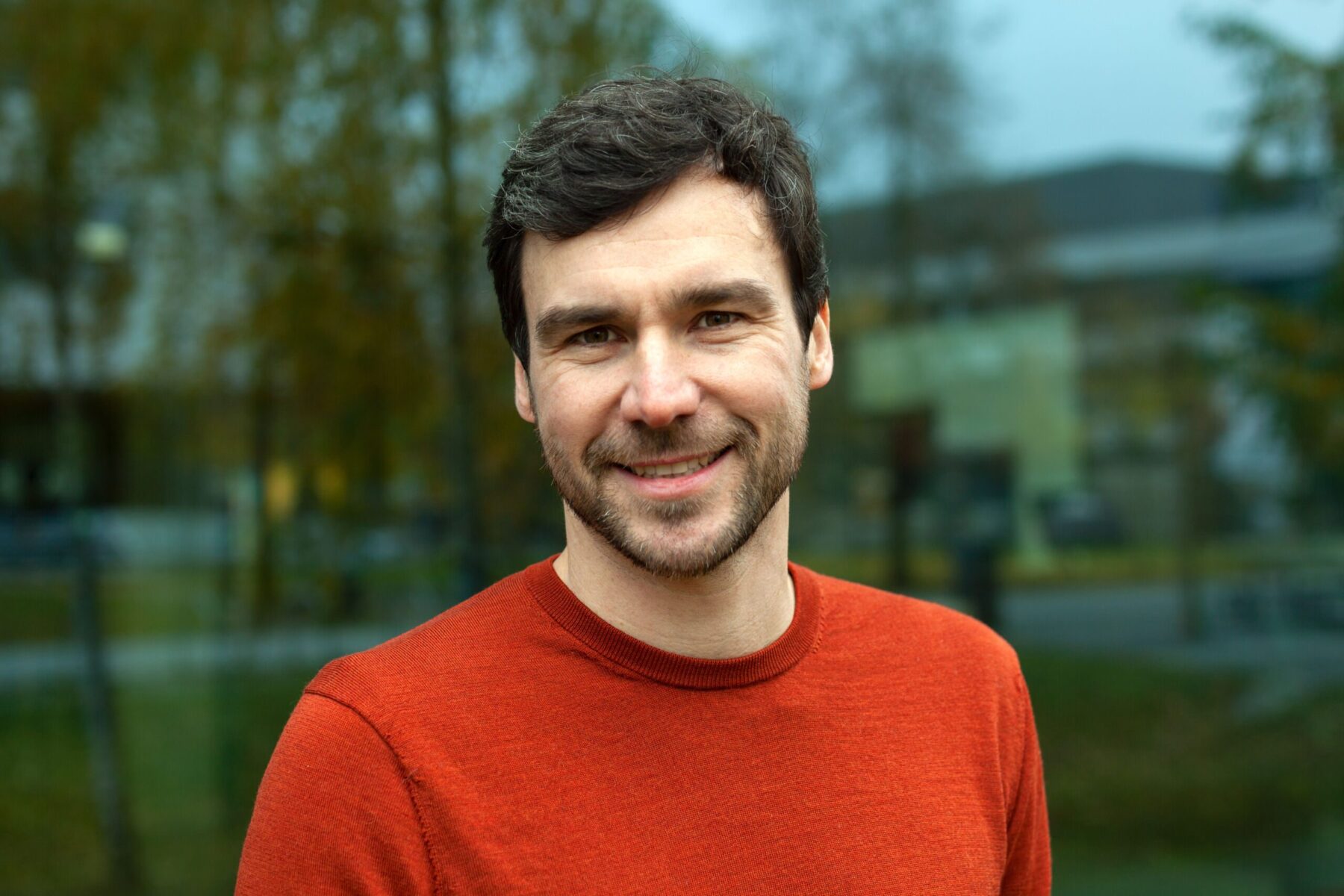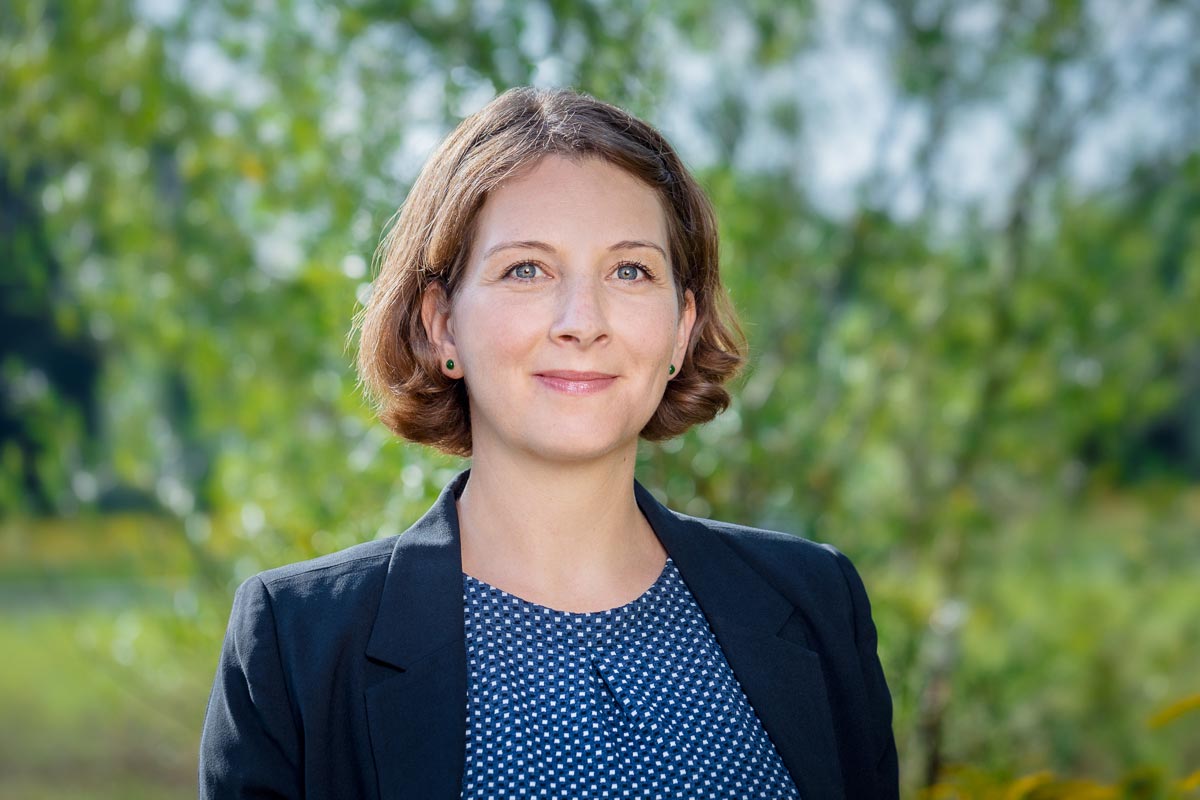
“Potsdam is one of the best research locations for environmental and climate sciences in Europe” – Interview with Andreas Kubatzki
Climate change is influencing global political, environmental and private decisions like no other issue. However, at universities, it often remains only a peripheral topic on specialised degree courses. Its wider implications are hardly investigated. The Climate, Earth, Water, Sustainability (CLEWS) degree at the University of Potsdam will change that. Starting in autumn 2021, students of this degree will be able to deepen their understanding of the climate system, water cycles and other natural processes on Earth. Andreas Kubatzki, coordinator of the study programme, is passionate about his topic. In our interview, he explains why Potsdam and the Berlin-Brandenburg region is an ideal setting for this course of study.
Mr. Kubatzki, the first master courses related to climate studies are now available in Germany. From your perspective, what is special about CLEWS, the international Master’s degree Climate, Earth, Water, Sustainability? What can the students expect?
Climate change is the most urgent issue of our time. Of our century, even. We need experts who understand the complexity of the issue and who can influence society. That is exactly what CLEWS offers. In my opinion, this is a very high-quality programme. We work with prestigious research institutes that have an excellent reputation worldwide. The international degree course is led by the university’s Institute of Environmental Science and Geography and Institute of Physics and Astronomy in Potsdam Science Park. Additionally, we collaborate with the Potsdam Institute for Climate Impact Research (PIK), the Alfred Wegener Institute for Polar and Marine Research (AWI), as well as the German Research Centre for Geosciences (GFZ). Thus, we also have high-quality teachers. Professor Axel Bronstert, Professor Ricarda Winkelmann and Professor Stefan Rahmstorf are only three examples.
The entrance requirements for the Master’s programme are extremely strict. Previous academic knowledge of natural sciences is almost obligatory. Why?
Students must give evidence of their completion of certain modules and their credit points in the disciplines of physics, mathematics and environmental sciences. That is important and necessary. The CLEWS Master of Science programme focuses especially on quantitative environmental research. The students learn how to precisely understand, for example, Earth and climate system interactions and processes and the impacts of environmental changes on regional water systems and also grapple with mathematical and physical equations in the process. Handling and modelling environmental data is a methodological focus of this course of study. Modelling enables us to simulate environmental processes and to project them into the future. That is particularly important in order to recognize potential developments early on and to be able to act in time.
What has been the reaction to the new master’s course?
The response has been truly overwhelming. Roughly 500 applications have already been received for the first semester. These came from all parts of the world, including Pakistan, China, Indonesia, Bangladesh, Iran, Turkey, Israel, Ghana, Morocco, and various EU countries – including Germany. Also, we received many applications from India. I assume that we will even surpass this response next year.
How many candidates could in fact begin studying?
From the start, our goal was to create a small group of highly motivated, achievement-oriented students. In total, 25 students have now registered. What particularly pleases me is that the proportions of men and women are relatively equal.
The themes studied in the course are very wide-ranging. What jobs and types of professions will the students here be prepared for? And what is your view of their chances of employment?
Climate change and the related changes in the environment are the main issues of our century. We need people who understand, in detail, the processes behind it and who can act as experts in various areas. In general, the degree course is highly suitable for those who want to go into research. That is also due to our close academic collaborations. Students have good chances of studying for a doctorate while working at the University of Potsdam, the Potsdam Institute for Climate Impact Research, the Alfred Wegener Institute for Polar and Marine Research, or the German Research Centre for Geosciences (GFZ). Moreover, there is a variety of very good job prospects, for example in NGOs, in companies whose work relates to the environment, and with environmental authorities. The need for experts in climate and environmental protection will continue to grow.
You are the project coordinator for this field of study. What is a typical working day like for you?
In principle I am the main contact person for everything that happens inside and outside the university in connection with CLEWS. I answer the many enquiries from people interested in the course and advise and support our students. I help to produce study and teaching plans – working closely with all teachers and students – and I am the main contact person for the university administration, the individual departments, and our partner institutions. I deal with marketing, revise flyers, write texts for the website’s home page, and answer media enquiries. Moreover, I am involved in the redesign and evaluation of the modules, support the Study Commission and advise the Examination Committee on the selection of candidates. It is an exciting and varied task to bring a new course of studies to life.
You are also an environmental scientist and have investigated soil in Brazil, among other research projects. What motivates you?
I am very happy to be able to work in the area of environmental science. It gives me satisfaction to participate in something that can make the world a little bit better. I enjoy working at the university. Being interface between students, teachers and researchers is exciting. The mix of nationalities among the students brings liveliness and a refreshing curiosity. The teachers have a great deal of specialized knowledge, and it is certainly fun to work together on such a high level. I can work on a new breakthrough and experience the intrinsic enthusiasm of everybody involved.
In 2005, you were a student here in Potsdam – today you are the course coordinator. What has been your experience of the transformation of the Golm location and the Potsdam Science Park in the last 15 years?
The development of Potsdam Science Park has been outstanding. We have a modern campus and a friendly atmosphere. More and more students from abroad are moving to Potsdam-Golm. The rail connections have also clearly improved. Team spirit is very much alive. People help each other. I still have many questions, just like before, and there is always someone who will help me.
In your view, what are the location’s advantages? How would you describe the cooperation between the university and the other research institutes?
In my view, Potsdam Science City offers one of the best research locations for environmental and climate sciences in Europe. The working conditions are excellent. Here, you’ll find many different skills concentrated in one area. Many people do not realize how many high-quality research centres there are in Potsdam. Let’s take the research topic Earth and environmental systems at the University here in Potsdam Science Park, or the institutes on the Telegrafenberg, where the Alfred Wegener Institute for Polar and Marine Research, the German Research Centre for Geosciences and the Potsdam Institute for Climate Impact Research are based. All of them are well known internationally. Federal President Steinmeier was recently here, and Greta Thunberg too. There, you have scientists who are taking part in the UN Climate Change Conference in Glasgow and teaching here at our institutes. We are gathering researchers who are internationally acclaimed. That is a particular strength of CLEWS.
Mr. Kubatzki, thank you for our conversation.
This blog and the projects of Standortmanagement Golm GmbH in the Potsdam Science Park are funded by the European Regional Development Fund (ERDF) and the state of Brandenburg.
Image Credits: Andreas Kubatzki © Andreas Kubatzki
Contact

Julia Hinz
Site marketing
julia.hinz@potsdam-sciencepark.de + 49 331 237 351 109